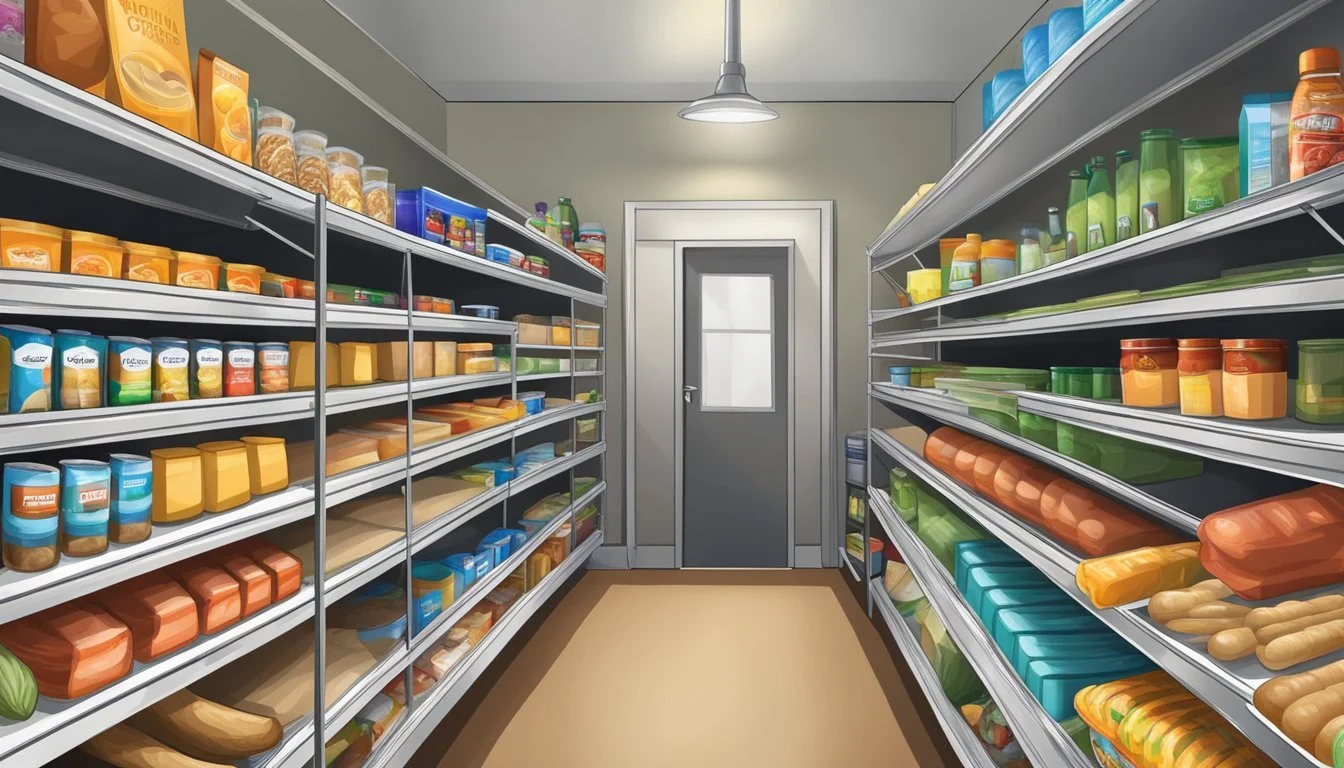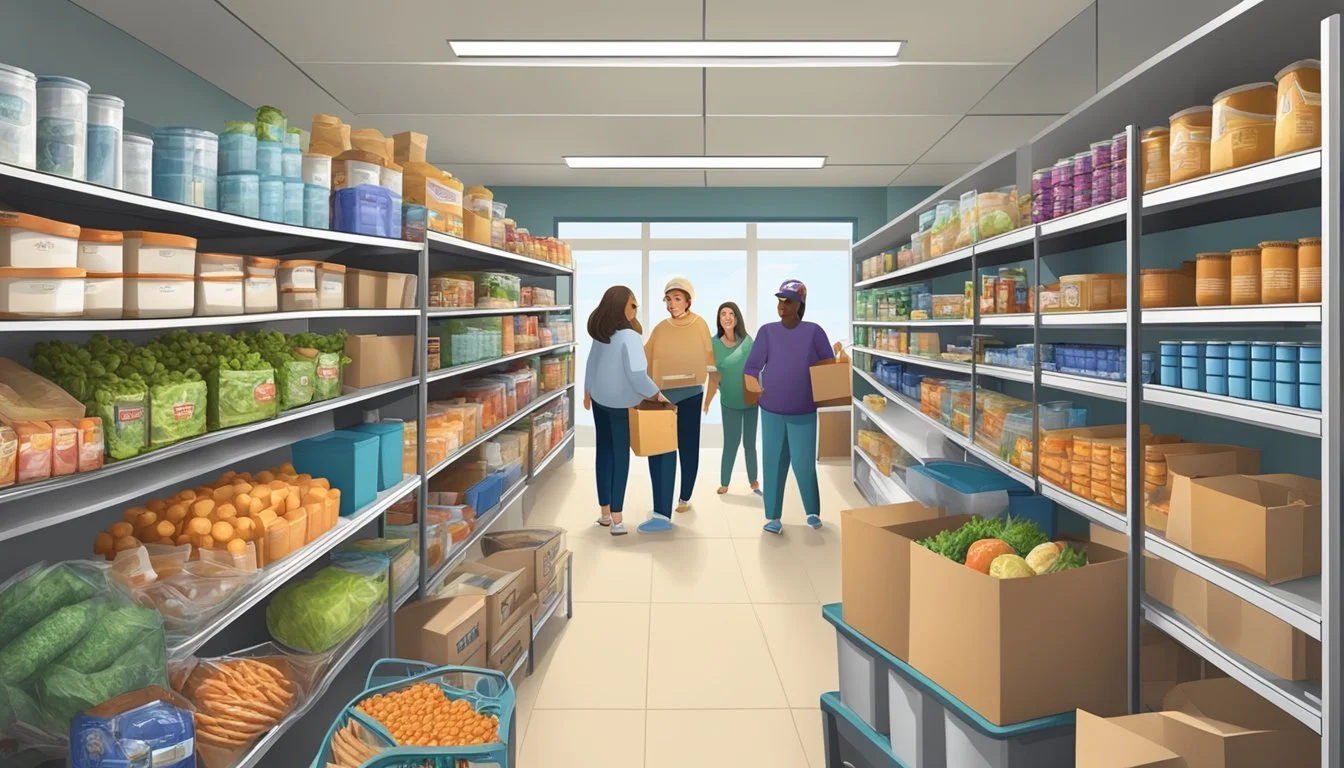Free Groceries and Food Pantries in Shelby County, Texas
Your Guide to Local Assistance Programs
This Article is Part of Our Guide on Free Groceries in Texas
Access to nutritious food is a fundamental need for all individuals, and Shelby County, Texas, acknowledges this by providing an essential network of food pantries and free grocery distribution services for its residents. Food insecurity can affect anyone, from any walk of life, and the county's food assistance initiatives are designed to ensure that nobody has to face the hardships of hunger. With a range of services aimed at aiding those in need, these food pantries offer a variety of items, including fresh produce, canned goods, and staple foods to support balanced diets.
The pantries in Shelby County operate with a spirit of community support, striving to offer a helping hand to those facing temporary or long-term financial difficulties. By providing detailed information on locations, hours of operation, and eligibility requirements, Shelby County makes it easier for individuals and families to find the assistance they need. Whether it is through traditional walk-in pantries or more innovative mobile and drive-thru options, the goal is to provide accessible and dignified support.
Collaborations between local agencies, nonprofit organizations, and federal programs ensure that the support network is both expansive and robust, adapting to the unique demands of the community. As federal food assistance programs evolve, Shelby County's food pantries integrate these changes to maximize the support provided. The mission is straightforward: to stretch a hunger safety net that ensures all Shelby County residents have the resources they need for nutritional security.
Understanding Food Insecurity in Shelby County
In Shelby County, food insecurity is a pressing challenge impacting both the overall community and its most vulnerable groups. Food insecurity, in its essence, denotes a lack of consistent access to adequate food for an active, healthy life — a reality faced daily by numerous Shelby County residents.
The factors contributing to this insecurity are multifaceted, involving low income, unemployment, and underemployment. Government programs like SNAP and WIC provide some relief, aiming to improve access to nutritious food, especially among low-income households. However, even with these supports, the gap between need and resources persists.
Community support plays a critical role in bridging this divide. Food pantries and local organizations in Shelby County strive to supplement efforts by providing free groceries and culturally appropriate meals. They act as crucial points of support for many families and individuals.
Here is a brief breakdown of support structures:
Government Programs: SNAP, WIC
Community Initiatives: Food pantries, free meal programs
Statistics show that areas of poverty in Shelby County are often located significantly far from supermarkets or grocery stores, compounding the difficulty of acquiring food. This geographical challenge is especially pronounced for those living more than 1 mile away in urban settings or 10 miles in rural areas.
While numerous food banks and pantries operate within Shelby County, it's clear that the solutions to food insecurity require a collective effort, involving sustained local and government support and community-driven initiatives. The community's engagement is essential in ensuring that residents have access to necessary resources to combat food insecurity.
Comprehensive Guide to Shelby County Food Pantries
Food insecurity is a pressing issue in Shelby County, Texas. This section aims to connect residents with local food pantries, providing essential information on their whereabouts, service hours, and eligibility criteria for accessing free groceries and food assistance.
Locations Overview
Shelby County hosts a network of food pantries designed to serve residents in need. These include:
Faith Heritage COGIC: Located at 3802 Gragg Avenue, Memphis, Tennessee 38108.
West Central Community Action (WCCA): Offers a variety of services including emergency food assistance.
Shelby County Pantry Pals: A local organization committed to addressing food scarcity.
Hours of Operation
The operating hours for food pantries in Shelby County vary:
Faith Heritage COGIC: Available per request; Residents may call to confirm hours.
WCCA Shelby County Food Pantry: Appointment required; The pantry encourages calling ahead to schedule a visit.
Eligibility Requirements
Eligibility for food assistance services in Shelby County typically includes:
Residential Criteria: Assistance is often reserved for Shelby County residents. For example, Faith Heritage COGIC serves only residents of the 38010 zip code area.
Household Size: Some pantries, like WCCA, pre-package food based on household size to ensure an adequate supply for 3-4 days.
Residents should contact the individual food pantry to confirm specific eligibility requirements and arrange for services.
Additional Food Assistance Services
In Shelby County, Texas, residents facing food insecurity have access to a variety of programs beyond traditional food pantries. These services range from structured food bank resources to government-assisted nutrition programs, ensuring a comprehensive approach to address the issue of hunger.
Food Bank Resources
Food banks in Shelby County serve as centralized hubs for food distribution, offering assistance to individuals and families in need. They often partner with local pantries, soup kitchens, and other nonprofits to reach the widest number of people possible. These resources commonly provide:
Bulk food items: for distribution through network partners.
Emergency food boxes: typically available for immediate support.
Soup Kitchens and Meals on Wheels
Soup kitchens provide hot meals to those in need without the expectation of payment, often located in community centers or run by faith-based organizations. Meals on Wheels is a significant program that delivers meals to seniors and individuals with disabilities who might not have access to nutritious food otherwise. Key features include:
Daily or weekly hot meals: served on-site at soup kitchens.
Home delivery services: for elder and disabled community members through Meals on Wheels.
Government Assistance Programs
Government programs such as the Supplemental Nutrition Assistance Program (SNAP), commonly known as food stamps, play a crucial role in offering food assistance. Eligible individuals and families receive monthly benefits which can be used to purchase groceries at participating stores. These programs:
Support purchasing power: allowing beneficiaries to buy food that meets their dietary needs.
Provide nutrition education: to promote healthier food choices and lifestyles.
Nutrition and Health Support
Residents in Shelby County, Texas seeking assistance with their nutritional needs can find valuable services including tailored nutrition counseling and support for specialized diets. These resources help ensure that individuals and families not only receive food but also access the knowledge needed for healthy eating practices.
Nutrition Counseling Services
Shelby County food assistance programs often provide more than just free groceries; they integrate nutrition counseling services. These initiatives are typically offered through local food pantries in collaboration with WIC (Women, Infants, and Children) programs, where qualified professionals offer guidance on creating balanced meals. Counseling services may cover:
The importance of including a variety of fruits and vegetables in daily meals.
Ways to incorporate dairy and meat into a diet for comprehensive nutrition.
Strategies for meal planning and preparation to maintain a healthy lifestyle.
Support for Specialized Diets
Understanding that some residents may have specific dietary needs due to health conditions, Shelby County food assistance programs often include:
Options for gluten-free, diabetic-friendly, or heart-healthy food items.
Support groups or educational materials guiding the selection of appropriate foods.
Discussions on how to source and prepare foods that cater to specialized diets, ensuring access to dairy, meat, fruits, and vegetables that meet their nutritional requirements.
Support Beyond Food Provision
In addition to free groceries, Shelby County offers a range of services aimed at supporting residents with other vital needs. These services encompass financial aid, essential goods, and guidance through various challenging situations.
Financial and Bill Assistance
Shelby County provides financial assistance and bill payment support to its residents. Rent relief and aid with utility bills are crucial for those struggling to keep up with their expenses. These programs aim to prevent homelessness and ensure that basic living needs are met.
Clothing and Essential Goods
Individuals in need can access clothing and essential goods like soap and toiletries through local services in Shelby County. These items are often distributed by charitable organizations and are essential for maintaining personal hygiene and dignity.
Referral Services and Counseling
Residents can benefit from referral services and counseling to navigate through life's challenges. Providing more than just material aid, these services connect individuals with expert guidance and support networks, which are essential for emotional and mental well-being.
Volunteering and Donations
Volunteers are the backbone of food pantries in Shelby County, Texas. They play a crucial role in the day-to-day operations, ensuring that the community receives the support it needs. Individuals can contribute their time sorting and distributing food, assisting with inventory management, or helping with administrative tasks. Those interested in volunteering can reach out directly to the pantries for opportunities.
Donations are equally essential to sustain the operations of food pantries. Pantries depend on the generosity of the community to provide a steady supply of food and financial support. Non-perishable food items such as canned meats, vegetables, and dry goods are always in demand. Monetary contributions, on the other hand, allow pantries the flexibility to fill in nutritional gaps and cover operational costs.
Ways to Support Pantries Description Food Donations Drop off non-perishable food items at local pantry locations. Monetary Donations Offer financial aid to enable pantries to purchase specific items in need. Volunteer Time Contribute your time and skills to help with day-to-day pantry tasks. Spread the Word Raise awareness by sharing information on social media and within your network.
The community's involvement is imperative for food pantries to thrive. Local businesses and organizations are encouraged to partner with pantries, organizing food drives or fundraiser events. Such collaborative efforts fortify the network of assistance, ensuring that the pantries can continue to provide for those in need.
Building a Resilient Community
In Shelby County, Texas, community resilience in the face of food insecurity is an ongoing concern. Food pantries and free grocery programs are stepping stones towards establishing a strong social safety net, particularly for vulnerable populations.
Food Banks and Pantries:
Seniors, the disabled, and the homeless often find access to nutritious food challenging. Local food banks bridge this gap by providing tailored services to accommodate their needs.
For the working poor and low-income families, these resources are essential in stretching limited budgets.
Immigrants, who may face language barriers or unfamiliarity with local systems, receive culturally sensitive support and assistance.
Impact on Individuals:
Individuals benefit from the immediate relief of food assistance programs, which in turn fosters self-reliance and stability.
Nutritious food access increases overall wellness and productivity within the community.
Community Engagement:
Volunteering and donations from local residents are the lifeline of these programs, enhancing community bonds.
Through collaboration, food banks and the community cultivate an environment of mutual support.
By addressing the fundamental needs for various groups, Shelby County fosters a community that stands resilient—poised to withstand and recover from hardships related to food scarcity.









